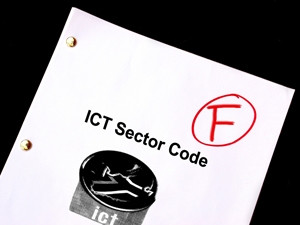
Two years down the line from the first request for nominations to the ICT charter council - to date non-existent - telecoms and postal services minister Siyabonga Cwele has issued another notice.
This comes just short of two-and-a-half years after the ICT charter, which had been almost a decade in the making, was finally gazetted with immediate effect by trade and industry minister Rob Davies, in June 2012.
Although nominations of council members were requested towards the end of 2012, the process was not followed through, leaving the ICT charter without the board that was meant to serve as an oversight body to ensure its implementation.
Cwele officially repealed the initial notice inviting sector representatives to serve on the council - Gazette no 35789 of 15 October 2012 - on Friday, and issued the new invitation for nominations (Gazette no 38152) yesterday.
High hopes
The long-awaited ICT charter came under fire last year, with industry members calling it a failure, noting that - a year after implementation - it had not had any flow-through benefits, nor had its oversight body been established.
The charter was set up with a number of laudable aims in mind - including the need to bridge the digital divide by promoting access to ICT, promoting the effective implementation of the Broad-Based Black Economic Empowerment Act, stimulating and supporting growth in the sector, supporting skills development, and advancing economic and social transformation in the sector.
It includes targets such as unlisted companies being 30% empowered, and listed entities to sell 25.1% to black partners, with equity deals capped at R7.5 billion. The charter also sets a target of 10% of voting rights to be in the hands of black women.
The compliance target for enterprise development is 5% of after-tax profit, while socio-economic development contributions have a compliance target of 1.5% of after-tax profit.
Share